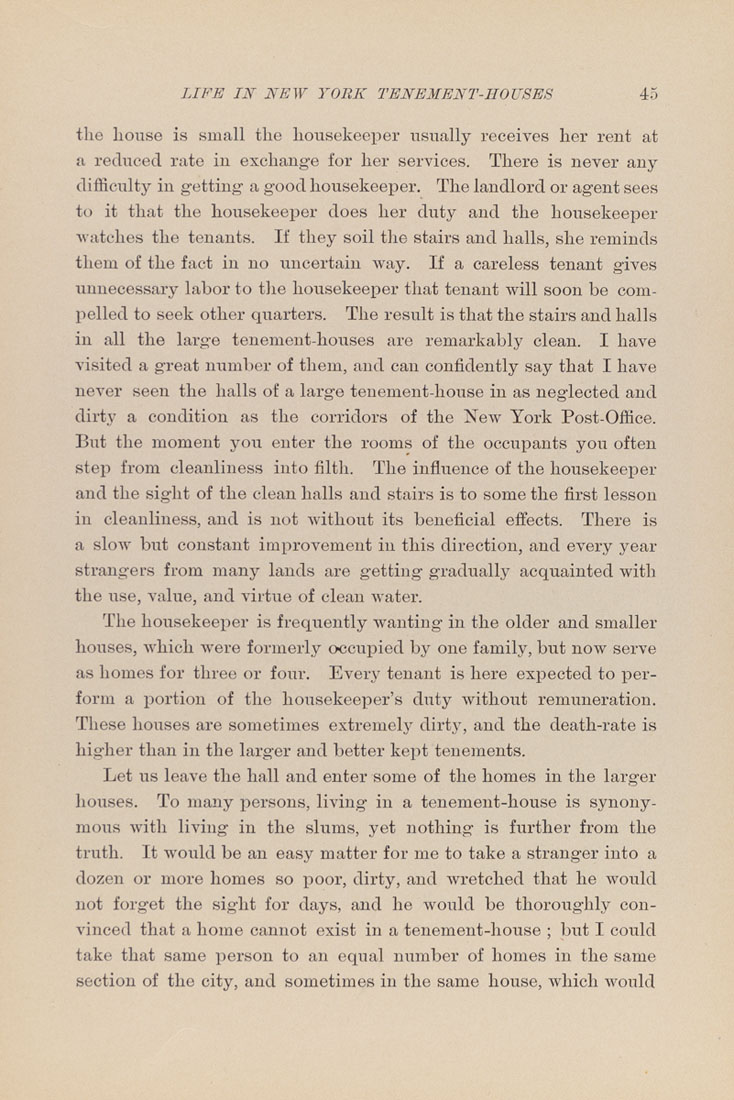LIFE IN NEW YORK TENEMENT-HOUSES 45
the house is small the housekeex3er usually receives her rent at
a reduced rate in exchange for her services. There is never any
difficulty in getting a good housekeeper. The landlord or agent sees
to it that the housekeeper does her duty and the housekeeper
watches the tenants. If they soil the stairs and halls, she reminds
them of the fact in no uncertain way. If a careless tenant gives
unnecessary labor to the housekeeper that tenant will soon be com-
X3elled to seek other quarters. The result is that the stairs and halls
in all the large tenement-houses are remarkably clean. I have
visited a great number of them, and can confidently say that I have
never seen the halls of a large tenement-house in as neglected and
dirty a condition as the corridors of the New York Post-Office.
But the moment you enter the rooms of the occupants you often
step from cleanliness into filth. The influence of the housekeeper
and the sight of the clean halls and stairs is to some the first lesson
in cleanliness, and is not without its beneficial effects. There is
a slow but constant imx3rovement in this direction, and every year
strangers from many lands are getting gradually acquainted with
the use, value, and virtue of clean w^ater.
The housekeexoer is frequently wanting in the older and smaller
houses, which were formerly occupied by one family, but now serve
as homes for three or four. Every tenant is here expected to x^er-
form a portion of the housekeeper's duty without remuneration.
These houses are sometimes extremely dirty, and the death-rate is
higher than in the larger and better kept tenements.
Let us leave the hall and enter some of the homes in the larger
houses. To many persons, living in a tenement-house is synony¬
mous with living in the slums, yet nothing is further from the
truth. It would be an easy matter for me to take a stranger into a
dozen or more homes so x^ooi', dirty, and wretched that he would
not forget the sight for days, and he would be thoroughly con¬
vinced that a home cannot exist in a tenement-house ; but I could
take that same x^erson to an equal number of homes in the same
section of the city, and sometimes in the same house, which would
|








